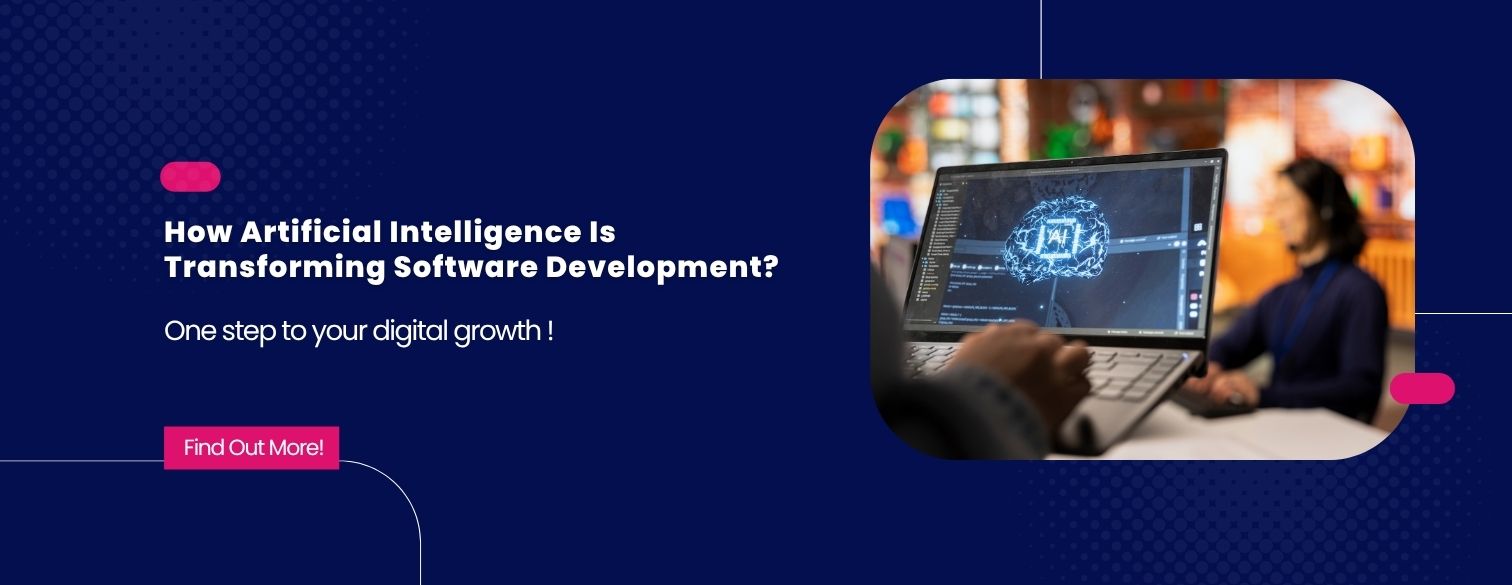
How Artificial Intelligence Is Transforming Software Development?
What Is Artificial Intelligence (AI)?
How Artificial Intelligence Is Transforming Software Development?
Benefits of Integrating AI into Modern Software Solutions
Top Use Cases of AI in Web and Mobile App Development
AI-Powered Automation: A Game Changer for Tech Companies
Custom AI Development: Why Your Business Needs It
How AI Enhances User Experience in Digital Products
Challenges in Implementing AI in Software Projects
The Future of AI in Software Engineering
Why Choose a Software Company with AI Expertise?
Machine Learning vs. Artificial Intelligence: What’s the Difference?
FAQ
Let's Create an Exceptional Digital Experience Together
In the digital-first world, a superior user experience is no longer a "nice-to-have"—it is a business imperative. A thoughtful and well-executed AI Technology can be the catalyst for increased customer loyalty, higher conversion rates, and a stronger brand.
If you are ready to elevate your digital presence and create experiences that resonate with your audience, we invite you to connect with the team at Vivionify. Let's work together to turn your vision into a reality and build a digital product that is not only beautiful but also beautifully effective.
Contact us today for a consultation and let's begin the journey of transforming your user experience.
contact us
- +2011 45553287
Alexandria, Egypt
- contact@vivionify.com
Privacy PolicyFAQTerms & Conditions